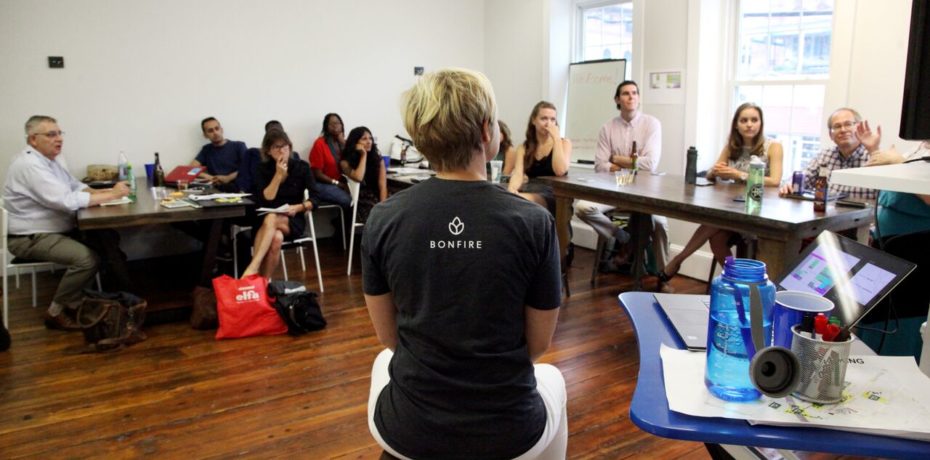Anika Horn is going to save the world. One business at a time. Horn is a “social venturer” – a person who helps businesses implement strategies that are both socially conscious and profitable. In order to accomplish her mission, Horn, along with Larkin Garbee of 804RVA, Ashley Ray of Emergent Social Solutions, Stephanie Hepp of Venture Frameworks, and VCU marketing student Ashleigh Rynberg, is bringing the Unreasonable Lab to Richmond.
Before moving to Richmond a year ago, Horn spent six months traveling and researching support programs for social entrepreneurs around Europe, Australia, and the United States. This experience revealed a problem in the world of social entrepreneurs: “A lot of large cities have infrastructures to support social entrepreneurs; however, mid-tier cities like Richmond do not.” Enter the Unreasonable Institute.
The Unreasonable Institute is an accelerator. To people in the startup world, the word “accelerator” refers to a highly competitive program that will jump-start their businesses. People currently in the startup game should also be familiar with the word incubator. Incubators are slightly different to accelerators; you can read about the difference between incubator and accelerator here. Entrepreneurs apply for a place at an accelerator that will provide in-depth mentoring, speakers, and workshops all geared toward making their business a success. The Unreasonable Institute’s labs are mini-accelerators taking place all over the world, and when Horn saw the Institute was looking for volunteers to run its programs, she jumped at the opportunity to bring its philosophy to Richmond. “My cofounders and I often work with startups that address social challenges, but these don’t have access to a support program specifically tailored to the needs of social entrepreneurs.”
The team received 33 applications and accepted eight entrepreneurs to take part in the program. “The impact is not necessarily exclusive to Richmond,” Horn explains. “For example, we have a Sudanese entrepreneur who is creating impact both here and abroad. He buys coffee from Sudanese refugees in Ethiopia and then sells it here in Richmond. He, therefore, raises awareness in the States and helps support livelihoods in Ethiopia.” The entrepreneurs range from a young woman bringing the STEAM program (Science, Technology, Engineering, Arts, & Math) to low-income, middle school girls of RVA to a team who is working to provide answers and clinical expertise to parents of children with autism.
The Unreasonable Institute’s website is fairly typical for a 21st century business. However, upon closer inspection you will notice that, amongst the tabs leading you to explanations and biographies, there is one that says “Failures.”
“We believe that in order to create a great business or a great venture, founders must fail in order to learn what doesn’t work,” Horn explains. “We learn more from failure than from success. It prevents you from walking down roads that don’t lead anywhere. That’s why we encourage entrepreneurs to experiment and talk to their potential customers. In the startup world that’s all we talk about.”
Horn points out, as an example, that if a business puts a product in front of a customer and the customer doesn’t like it, then an entrepreneur can learn what worked and what didn’t work? “From failure comes the opportunity to grow,” says Horn.
For the purposes of this experiment, the program itself is the prototype and this first round of entrepreneurs are the customers. The goal for both parties is to learn, to fail, and to grow. As it turns out, solving entrepreneurial problems is a lot like saving the world. You’ve got to do it one step at a time.

